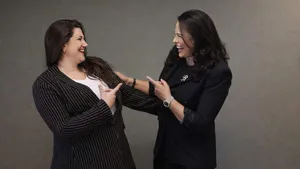Treatment GuideJust DiagnosedSex & DatingAfrican AmericanStigmaAsk the HIV DocPrEP En EspañolNewsVoicesPrint IssueVideoOut 100
CONTACTCAREER OPPORTUNITIESADVERTISE WITH USPRIVACY POLICYPRIVACY PREFERENCESTERMS OF USELEGAL NOTICE
© 2026 Pride Publishing Inc.
All Rights reserved
All Rights reserved
By continuing to use our site, you agree to our Privacy Policy and Terms of Use.
Water is by far the most important nutrient you consume each day. You can last a lot longer without calories, protein, and other nutrients. If you go just three to four days without water, your body will call it quits. While is it the most important nutrient, it is the one we tend to do without when we are busy. Millions of people are walking around mildly to moderately dehydrated without knowing it. And if you are immunocompromised, your sources of water need to be especially safe. Since water is so important, here are some key points to know about it. To figure out how much water a body requires each day, multiply your weight in pounds by 15 for the amount in milliliters. If you prefer to think in liters (as water drinkers often do), you can multiply your weight in pounds by 0.015. That means if you weigh 150 pounds, you need at least 2,250 milliliters, or 2.25 liters (9.5 cups; eight cups is a half gallon), per day. If you are already dehydrated, you will need more to rehydrate your body. If you are chronically dehydrated, it will take a few weeks or more to fully rehydrate yourself. You will probably notice that you are urinating a lot while you get your body readjusted to a good water level. The U.S. Environmental Protection Agency has standards set for contaminants that are possible health risks. You can contact your local water supplier to get an idea of what types of water and treatments are used in your area and if there are any special issues to be aware of for your health. If you get your water from an individual well, you can have a sample tested by your local water authority. 'Naturally pure water' does not exist. Drinking water comes from lakes, rivers, and reservoirs. People in rural areas and some city folk might drink groundwater from wells. Water suppliers might add coagulants to water to get the dirt and contaminants to form clumps that will settle to the bottom of tanks; it is then filtered to remove smaller contaminants like viruses and the protozoan giardia. From there, most water suppliers disinfect their water by adding chlorine or some other disinfectant to kill most bacteria and other contaminants. If your water comes from a well, it is naturally filtered through layers of earth into underground reservoirs and might need little to no treatment, depending on local conditions. In some cases water contaminated with organic chemicals may be treated with activated carbon. The EPA and the Centers for Disease Control and Prevention recommend special care for drinking water if you are immunocompromised'specifically, if you have a CD4 count less than 200. In 2001 new standards for water safety were put into place for cryptosporidium and other difficult contaminants. While the standards are set, quality can vary from city to city, and the current information does not support a blanket recommendation to avoid tap water. However, for people with low CD4 counts, it may be worthwhile to take a few precautions. ' Boil water. If you live in an area with a high risk of cryptosporidium, this is the most effective way to kill the critter. You will need to boil water for a full minute. ' Have a point-of-use filter that cleanses water to one micrometer. These can include reverse-osmosis filters'those labeled as certified for cyst removal or as 'absolute' one-micron filters. Those labeled as 'nominal' may not remove cryptosporidium. Use filters according to instructions and change the filter components on a routine basis, as recommended by the manufacturer. ' Drink bottled water that has been filtered to one-micron specifications. Spring waters and well waters that are from protected sources are less likely to be contaminated than those from rivers and lakes. Distilled water and bottled water treated with reverse osmosis ensures cryptosporidium removal. Keep in mind that although bottled water may be filtered for cryptosporidium, this does not ensure the removal of all organisms that may cause problems in people with severely compromised immune systems. Fields-Gardner is the director of services for The Cutting Edge, an HIV nutrition company in the Chicago area. She is a member of the International AIDS Society and the American Dietetic Association's Dietetic Practice Group on HIV and AIDS.
From our Sponsors
Most Popular
“So much life to live”: Eric Nieves on thriving with HIV
September 03 2025 11:37 AM
Messenger RNA could be the key to an HIV vaccine — but government cuts pose a threat
August 20 2025 8:02 AM
It’s National PrEP Day! Learn the latest about HIV prevention
October 10 2025 9:00 AM
Amazing People of 2025: Javier Muñoz
October 17 2025 7:35 PM
The lab coat just got queer
August 21 2025 10:00 AM
The Talk: Owning your voice
August 25 2025 8:16 PM
“I am the steward of my ship”: John Gibson rewrites his HIV narrative
September 16 2025 2:56 PM
Plus: Featured Video
Latest Stories
HIV-positive men stage 'Kiss-In' protest at U.S.-Mexico border
December 01 2025 12:56 PM
What the AIDS crisis stole from Black gay men
December 01 2025 6:00 AM
The Talk: Beyond the exam room
August 13 2025 3:15 PM
The Talk: Navigating your treatment
August 01 2025 6:02 PM
The Talk: Starting the conversation
July 25 2025 4:47 PM
Thanks to U=U, HIV-positive people can live long, happy, healthy lives
July 25 2025 2:37 PM
How the Black AIDS Institute continues to fill in the gaps
July 25 2025 1:06 PM
“I felt like a butterfly”: Niko Flowers on reclaiming life with HIV
July 23 2025 12:22 PM
Dancer. Healer. Survivor. DéShaun Armbrister is all of the above
July 02 2025 8:23 PM
BREAKING: Supreme Court rules to save free access to preventive care, including PrEP
June 27 2025 10:32 AM
1985: the year the AIDS crisis finally broke through the silence
June 26 2025 11:24 AM
VIDEO: A man living with HIV discusses his journey to fatherhood
June 10 2025 4:58 PM
Trump admin guts $258 million in funding for HIV vaccine research
June 03 2025 3:47 PM
Grindr is reminding us why jockstraps are so sexy and iconic
May 02 2025 5:36 PM
HRC holds 'die-in' to protest Trump health care cuts
April 28 2025 2:11 PM
Two right-wing Supreme Court justices signal they may uphold access to PrEP and more
April 21 2025 4:10 PM





































































